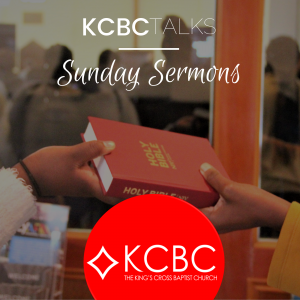July and August are months when people take flight from London, for a spot of R & R; some on their own, others with family or friends. While tourists flood the Capital, we escape, and find somewhere quiet to unwind, in the country or the beach; or fly to some party destination, where we whoop it up and get rid of the excess stress of an entire year.
We have names for this: for example, taking a vacation, or a holiday. But let’s think about the meaning of these words.

‘Vacation’ is from the Latin vacatio, which means: leisure, freedom, exemption, being free from duty, and immunity earned by service. The root word is vacare meaning ‘to empty’. Normally, we see a vacation as an escape from responsibility, from work, from chores. We may sometimes see it as a chance to bunk off from church, prayer, and even from God himself.
But God invites us to take a vacation with him: a break from normal life, a gap where we can refresh ourselves. Prayer is a vacation, emptying our lives from everyday responsibilities, in order to focus on God, and in so doing be strengthened.
The reason why we so often crowd God out of our lives, is that we want to be in control; that is to be God ourselves, for ourselves, instead of letting him be who he is, and wants to be, for us. A genuine vacation then means to empty ourselves of our own self-importance, and to open up space for God in our lives.

Prayer therefore is not about achieving anything specific, but about making room for God to spend time with us. Prayer is about relationship, not doing anything. To this degree, prayer is therefore the most unproductive, useless, activity we can engage in. Yes, we may have specific requests. But, at its heart, prayer means simply spending time with our Lord.
We often say that Christianity is about a love relationship with God. Prayer itself then is like going on a date, having a ‘special time’ with our Saviour. This summer, we can combine the usual meaning of ‘vacation’ with this spiritual sense, and take time, while we are relaxing, to be intimate with him, and hear him speaking into our lives, with his still, small, voice.
 This becomes even clearer, when we consider that other word: ‘holiday’. Derived from the ancient practice of the ‘Holy Day’, this was originally a time set aside from work, to celebrate a specifically religious festival. Over time, it became secularised, so that the spiritual element became lost, and it refers solely to time off work.
This becomes even clearer, when we consider that other word: ‘holiday’. Derived from the ancient practice of the ‘Holy Day’, this was originally a time set aside from work, to celebrate a specifically religious festival. Over time, it became secularised, so that the spiritual element became lost, and it refers solely to time off work.
When that happens, we don’t really recuperate from the pressures of everyday life. We just fill the empty time with more activities, which we think will fill us up – but cost us money! Let’s find, in whatever time-off we have this summer, opportunities to be with Jesus, in a truly regenerative manner, which will fill our emptiness with his fullness.




